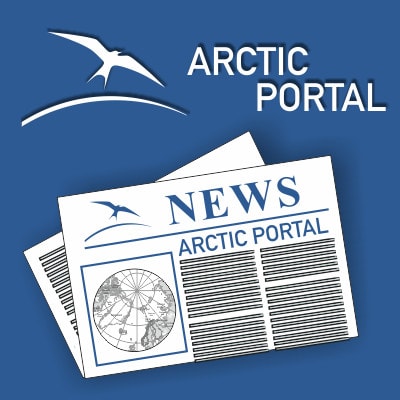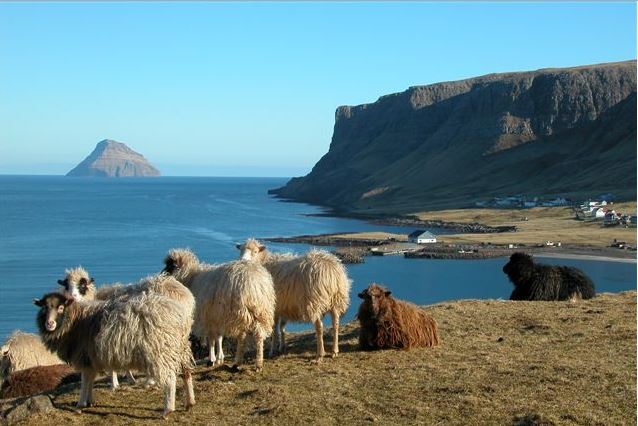
Early in the morning, a number of pilot whales was killed on the island of Vágar in the northwest of the Faroe Islands archipelago. Contrary to the common belief, this annual event taking place in Faroes, is not a festival nor a ritual. Indeed, pilot whales are taken any time of the year (but the majority between July and September), to provide food for the local population: the catches are not commercialized (although whale meat and blubber are occasionally available in the local supermarkets) but rather shared for free among the participants and local community.
Harvesting of marine mammals for local consumption has been and yet it is a necessary activity especially within the Arctic and sub-Arctic areas. Inhabitants of Canada, Greenland, Faroes, Russia, Iceland, to name but a few, heavily rely on fishing and hunting as source of fresh and healthy food, not that easily accessible at these latitudes.
As other hunting activities, as for instance seal hunting, pilot whale hunting is strictly regulated by the law and International principles for conservation and sustainable use of living marine resources. As regard the specific case of Faroes, whaling is an activity that has been regulated since 1298: the Sheep Letter outlined rules for the use of whales, while a dedicated regulation for pilot whaling was enacted in 1832 and was most recently updated in 2013.
The catch is sustainable, as the pilot whale is not an endangered species, the pilot whale population in the eastern North Atlantic is about 778,000 whales. "The most recent scientific estimate of abundance for the pilot whale stock is 128,000 in the Iceland Faroese survey area. This estimate is based on data from the latest Trans-Atlantic Sightings Survey (TNASS) in 2007, coordinated by the North Atlantic Marine Mammal Commission (NAMMCO).
Faeroes population catches between 800 and 1000 animals per year, a number representing less than 1% of the total whale population.
Whaling in the Faroes, as other activities as sealing in Greenland and Canada, are heavily condemned by animal right activists as a cruel, violent and unnecessary activity. Sea Sheperd, for instance, has today distributed a press release describing whaling as a massacre. "The beaches of the Faroe Islands are once again red with the blood of hundreds of slaughtered pilot whales" CEO of Sea Shepherd Global, Alex Cornelissen, said, "Without the presence of Sea Shepherd, shining a spotlight on these ferocious shores, this massacre will continue, unabated. We will ensure that the world cannot ignore this ocean massacre." (Read the full press release at the end of this article)
Sealing and Whaling have become one of the symbols of the misunderstanding between the Arctic and the southern areas of the globe.
Nevertheless, it must be admitted that a problem with whaling actually exists. Pilot whales, as other marine mammals, contain high levels of heavy metals such as mercury (in the meat and organs) and organochlorines (in the blubber). These contaminants are deposited in the marine environment through airborne pollution and waste from industrial processes, bio-accumulating up through the food chain where they are often found in high levels in top marine predators. These man-made contaminants are highly harmful for both the mammals and humans, but yet little attention has been given to raise awareness.
(more info here)
Press Release by Sea Sheperd:
Saturday, June 6 2015
Further information and interview requests, contact:
Michelle Mossfield - Media Director, Sea Shepherd Global
E:
Large Pod Of Pilot Whales Slaughtered In Brutal Grind In The Faroe Islands
This morning, at approximately 0840 local time, a large pod of pilot whales was slaughtered in the first grindadráp (grind) of the year, on the island of Vágar in the northwest of the Faroe Islands archipelago.
While official kill figures are yet to be released, estimates from the grindmaster indicate that as many as 150 individual pilot whales were in the slaughtered pod, making this one of the bloodiest grinds in at least two years.
The slaughter occurred just two weeks before Sea Shepherd crews are due to arrive in the Faroe Islands for the commencement of the organization's 2015 Faroe Islands Pilot Whale Defense Campaign, Operation Sleppid Grindini.
The ordeal commenced at approximately 0400 local time when the Faroese Fisheries Patrol vessel, Brimil, located the large pod south of the island of Vágar. Over the next four to five hours, as many as twenty-five hunting boats drove the pod, finally herding them on to the beach of Miðvágur where the grind eventually took place.
CEO of Sea Shepherd Global, Alex Cornelissen, said, "The beaches of the Faroe Islands are once again red with the blood of hundreds of slaughtered pilot whales. Without the presence of Sea Shepherd, shining a spotlight on these ferocious shores, this massacre will continue, unabated. We will ensure that the world cannot ignore this ocean massacre."
Land Team Leader, Rosie Kunneke, stated, "For more than four long, grueling hours, these animals fought for their lives. They were harassed, they were tortured, and then they were brutally killed in the presence of their family members. This is not tradition. This is a bloodbath."
For hundreds of years the people of the Faroe Islands have been herding migrating pilot whales from the sea into shallow water and slaughtering them. The slaughter, known by the Faroese term 'grindadráp' or 'grind', wipes-out entire family groups of whales and dolphins at one time.
Operation Sleppid Grindini will be Sea Shepherd's sixth campaign in the Faroe Islands. Led by the Sea Shepherd ships the Bob Barker, Sam Simon and Brigitte Bardot, and supported by a dedicated land team, the campaign marks the organization's strongest at-sea presence in the region to date.
